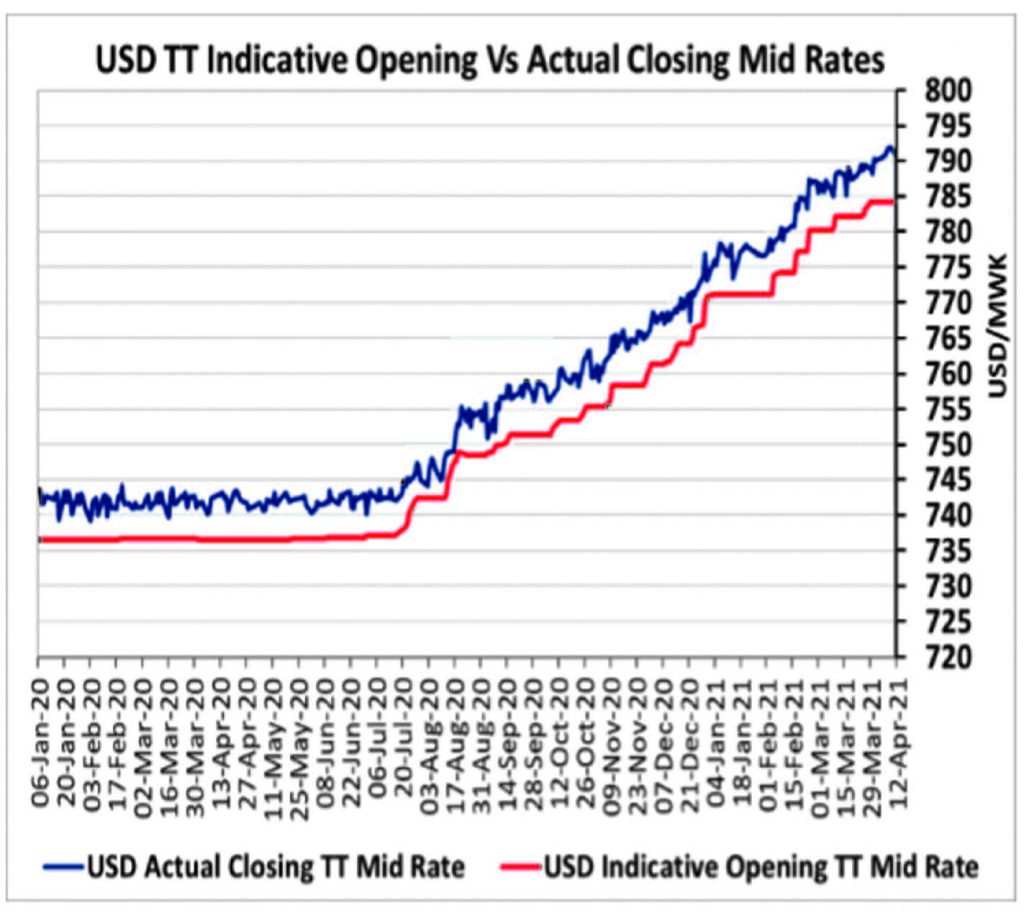Address structural issues to boost exports—Fimda
Financial Market Dealers Association of Malawi (Fimda) has urged authorities to address structural issues that inhibit the country’s productive capacity for the market to take advantage of the depreciation of the kwacha.
Fimda president Maclewen Sikwese said this in an interview on Friday following the continued depreciation of the local currency, which ideally should have been benefitting local exporters.

He said currency depreciation alone is not enough to impact the volume and value of the country’s exports.
“What is key also is to be deliberate around how we deploy our mostly borrowed foreign exchange resources into areas that would be self-sustaining from an exports generation perspective,” said Sikwese.
Market and investment analyst Bond Mtembekeza, who is also Alliance Capital Limited research manager, said this ideal situation works when an economy produces products that are competitive on the global market in terms demand, quality and volume.
He said: “Malawi has a dual problem. We import most of our things at the same time we have limited products to offer on the global market.
“Therefore, what depreciation does is to hurt the economy by raising prices of goods and services since we import most of our products regardless.”
In Malawi, the current account deficit has traditionally been large, averaging just under 19 percent of the gross domestic product (GDP) on account of a large merchandise trade deficit owing to the country’s dependence on fuel and capital imports, according to the Economist Intelligence Unit data.
The current account deficit is a measurement of a country’s trade value where the value of the goods and services it imports exceeds the value of the products it exports.
In an earlier interview, Malawi Confederation of Chambers of Commerce and Industry president James Chimwaza said the depreciation of the kwacha presents opportunities to local exporters.
“If we were producing, we would be competitive, but this is not the case in our country. The sad reality is that for as long as we keep on importing, we will suffer,” he said, adding that time has come for local businesses to take advantage of the weak kwacha.
Chimwaza said the depreciation of the kwacha should be a wake-up call to the country, observing that businesses need to seize opportunities that are within the country.
“This is the time we can, for instance, properly package our tomatoes to sell outside the country and get better prices,” he said.
Cumulatively, this year through October 1, the kwacha has depreciated against all major currencies losing K30.77 in value against the dollar, K30.66 against the pound, K71.40 against the euro and K2.75 against the rand, according to Reserve Bank of Malawi figures.





